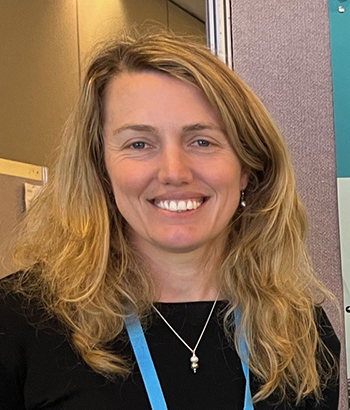“It seems like you need to know that you’re going to be sick well in advance. Because sometimes, you can't get in the same day or even the same week”.
This quote is from a 25-year-old Port Macquarie woman whom Healthy North Coast interviewed last year. Her experience is not unique. Pressure on our system is mounting. In some parts of the North Coast, patients are waiting two to three sometimes four weeks to see their regular GP.
The pandemic, fires and floods have taken their toll on primary health care services in our region, but the drivers that are creating the increased pressure on primary health care were there well before the first fires started in 2019.
Our rapidly ageing population is a big driver – with nearly a quarter of all residents on the North Coast 65 years or older (double the NSW and national averages) and this proportion is set to increase. Significant reductions in the numbers of medical students choosing general practice, the stalling of increases to Medicare rebates and a slowing of progress towards mixed funding methods that more appropriately remunerate primary care clinicians for multidisciplinary and value based care have been problems for too long.
The Medicare Taskforce recommendations, and the Government’s subsequent commitments in the Federal Budget in May this year, represent acknowledgement at a federal level that things need to change.
The commitments are conceptually good and represent a nod to those who have lobbied for such changes for years. A lot of the programs have not begun implementation yet, so it will be a few years before the full impact of this new way of funding and organising primary health care will be realised.
What are these changes and what will they mean?
There are four main areas of change that the Taskforce proposed:
- Access
This will involve blended funding models to support enhanced chronic disease management, such as via the introduction of MyMedicare to enable greater continuity of care between patients and their GP. Voluntary enrolments to MyMedicare are open now.
A renewed focus on rural and Aboriginal and Torres Strait Islander peoples’ health via Community Controlled Health Services is cited, as are greater incentives for general practices to deliver care during the after hours periods.
- Multidisciplinary team-based care
This will involve incentives for general practices to recruit social workers, physiotherapists, pharmacists and other allied health professionals into their practice to provide wrap-around support to patients. It will also involve more sophisticated workforce planning that ensures we are training an appropriate number of GPs, nurses and allied health professionals to choose primary care as their areas of speciality. And importantly once they are qualified and practising, that they are able to work to their full scope of practice.
- Modernising primary health care
This area will focus on enabling primary health care services to further embrace digital health and improve patient care by collating and drawing insights from data and health needs. In addition, MyHealthRecord will have greater investment, as will data infrastructure in primary health care services.
- Change management and cultural change
Greater recognition of practice administrators will come from this area of work. So will a stronger focus on empowering the community to have more say about how health care is organised and delivered. This will include things like patient reported experience measures becoming embedded into clinical practice as a measure of quality and value.
Some funding will go directly to general practices, allied health professionals and nurses to support these reforms. Primary Health Networks will also have a role in commissioning practices and other services to deliver some of the new models of care and ways of working.
While the full detail of these changes takes shape, Healthy North Coast will continue to keep working collaboratively with local GPs, pharmacists and the Local Health Districts to try to stem some of the pressure in the system. This involves setting up Medicare Urgent Care Clinics in Lismore and Coffs Harbour and expanding North Coast Health Connect, which offers 24/7 phone/web triage with the ability to directly book a telehealth or face to face GP appointment in more than 20 practices across the region.
Private consultations with community pharmacists are also available via this service.
North Coast Health Connect has seen good uptake to date with 8,000 calls made since December last year. Integration with HealthDirect and other Local Health District urgent care services is currently being explored to join this service up as part of a comprehensive and connected digital front door.
It is good that the call for change has been answered. And while the road is long, it is one that is well worth travelling.
















